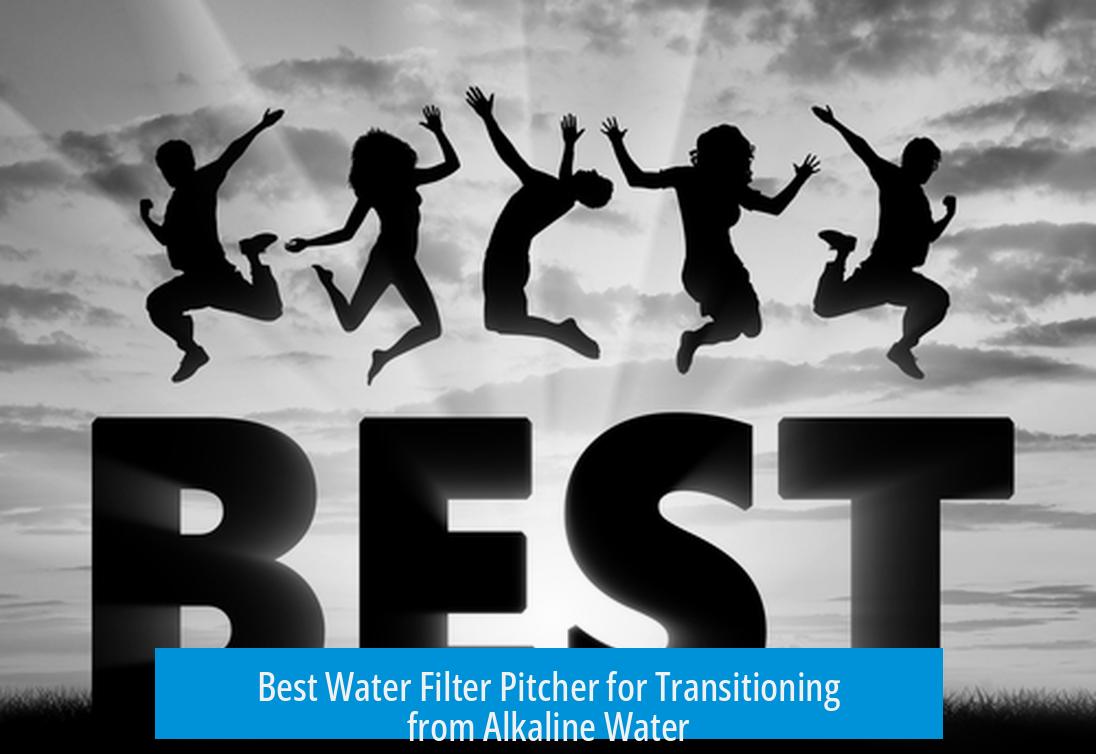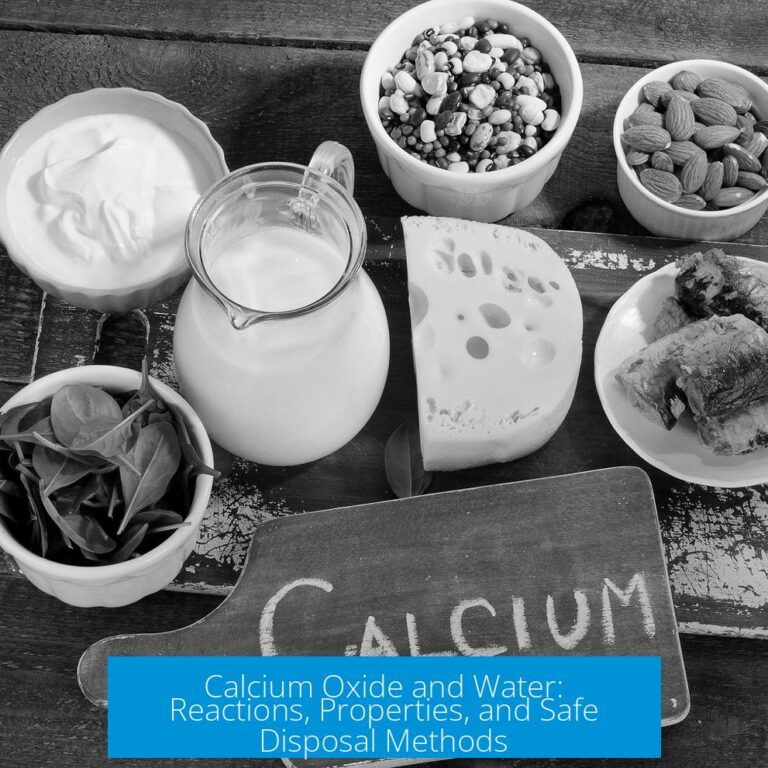Best Water Filter Pitcher When Switching from Alkaline Water
When switching from alkaline water, the best water filter pitcher is one that effectively removes contaminants without stripping beneficial minerals, such as the ZeroWater filter, which removes organic compounds and ions, delivering near-zero conductivity water while addressing concerns like PFAS contamination.
Understanding the Criticism of Alkaline Water
Alkaline water is often marketed with claims of health benefits related to its pH. However, scientific scrutiny indicates these claims lack merit. The stomach’s pH is about 2, an acidic environment that neutralizes any alkalinity in ingested water within seconds. Therefore, any supposed alkaline effects are essentially nullified immediately after consumption.
Experts describe alkaline water as a health fad with no substantial evidence supporting its benefits. This water type is often labeled a marketing scam, misleading consumers into paying premiums for minimal or no health advantages.
Evaluating Tap Water Safety in the US
Tap water in most US municipalities is generally safe for consumption. Annual water quality reports from local authorities confirm water meets safety standards. Filtration is mainly recommended for taste improvements or to remove occasional contaminants introduced by aging pipes, such as lead.
Simple carbon filters in water filter pitchers serve this function effectively. They can reduce chlorine, improve taste, and remove mild organic compounds. However, these filters may not remove heavy metals unless specifically designed for this purpose.
For households concerned about lead or other dangerous substances, sending tap water for testing is advisable. Allowing water to sit in a pitcher in the refrigerator for several hours can help chlorine dissipate, especially beneficial for pregnant individuals who should limit exposure to volatile compounds like chloroform.
The Role of Dissolved Ions in Drinking Water
Water often contains dissolved minerals such as calcium, magnesium, and potassium. These ions are important for physiological functions, contributing to hydration and cellular processes. Consuming ultra-pure or distilled water, devoid of these ions, can be harmful if relied on exclusively over time.
Reports exist of individuals experiencing health issues, including lethargy and weakness, after drinking only ultrapure water. The absence of essential dissolved ions can disturb the electrolyte balance in cells, impairing normal biological functions.
Water Filter Pitchers vs. Under Sink Systems
Water filter pitchers offer convenience and portability. They typically use activated carbon and ion-exchange resins to improve taste and reduce common contaminants. However, they may not provide comprehensive filtration for heavy metals, pesticides, or volatile organic compounds if present at higher levels.
Under sink filtration units provide a more robust solution. These systems often incorporate multiple stages, such as sediment filters, activated carbon, and reverse osmosis, removing a broader range of impurities. If municipal water contains elements near permissible limits — like cadmium or mercury — investing in an under sink system is prudent.
Addressing PFAS Contamination with Water Filters
Per- and polyfluoroalkyl substances (PFAS) have emerged as persistent environmental contaminants. Their presence is more common near military bases, airports, and certain industrial sites. Most people unknowingly carry PFAS in their bodies due to pervasive environmental exposure.
Not all water filters remove PFAS compounds. Some specialized filters, notably ZeroWater, demonstrate effectiveness in reducing both organic contaminants and dissolved ions, including PFAS, delivering water with very low conductivity.
Consumers living near potential PFAS contamination sites should consider testing their water and selecting a filter certified to reduce these substances. This precaution extends beyond general mineral and chlorine removal.
Choosing the Best Water Filter Pitcher When Moving Away from Alkaline Water
- ZeroWater Pitcher: Known for comprehensive filtration that removes dissolved solids and organic compounds, producing near-distilled quality water. Effective against PFAS and heavy metals.
- Brita Filters: Widely available carbon filter pitchers that improve taste and reduce chlorine but less effective against heavy metals or PFAS.
- Clearly Filtered: Filters that remove a broader spectrum of contaminants, including lead and VOCs, with pitcher models suitable for household use.
When switching from alkaline water, consumers should prioritize effective contaminant removal while retaining beneficial minerals. Completely stripping ions from water can cause health issues. Therefore, filters that maintain essential mineral content or allow remineralization are preferable in some contexts.
Consumer Advice for Water Filter Purchases
Knowledge about chemistry and water quality helps navigate filter options responsibly. Understanding contaminant dose, human safety thresholds, and filtration mechanisms prevents falling for marketing scams such as alkaline water hype.
Consumers should be cautious about promotional sales like Black Friday deals, which sometimes inflate prices prior to discounts. Comparing certified product efficacy and reading independent reviews provide better assurance of filter performance.
Summary of Key Points
- Alkaline water offers no scientifically proven health benefits; stomach acidity neutralizes its alkalinity instantly.
- US tap water is generally safe; carbon filters mainly improve taste and remove chlorine.
- Dissolved ions in water are vital for cellular health; ultrapure water lacking ions can impair bodily functions if consumed exclusively.
- Water filter pitchers vary; ZeroWater filters remove a wide range of contaminants including PFAS and provide near-zero conductivity water.
- Under sink filters offer more comprehensive purification, suitable for water with higher contaminant levels.
- PFAS contamination is widespread; testing and using filters capable of removing these compounds is recommended near risk areas.
- Consumers should educate themselves on water chemistry and filter options to avoid costly and ineffective purchases.
Q1: Why switch from alkaline water to a regular water filter pitcher?
Alkaline water claims are mostly marketing. Your stomach’s acid neutralizes alkalinity quickly. A water filter pitcher improves taste and removes contaminants without unnecessary claims about pH.
Q2: Are water filter pitchers effective against harmful chemicals like PFAS?
Some pitchers, like ZeroWater, can reduce PFAS levels. PFAS contamination varies by area, especially near military bases or airports. Testing your local water helps decide if you need specialized filters.
Q3: Will filtering water remove essential minerals my body needs?
Filters often remove minerals along with contaminants. Your body needs dissolved ions for balance. Ultra-pure water with no minerals can harm your cells. Choose filters that maintain mineral content if important to you.
Q4: How do water filter pitchers compare to under-sink filters?
Under-sink filters handle more contaminants like heavy metals and pesticides better. Filter pitchers are simpler and improve taste but may not remove all harmful substances found in some municipal water supplies.
Q5: Is filtering tap water in the US usually necessary?
Most US tap water is safe to drink. Filtering often just improves taste unless you have specific concerns like lead or chemicals. Check your water report to decide if filtering is worth your money.





Leave a Comment